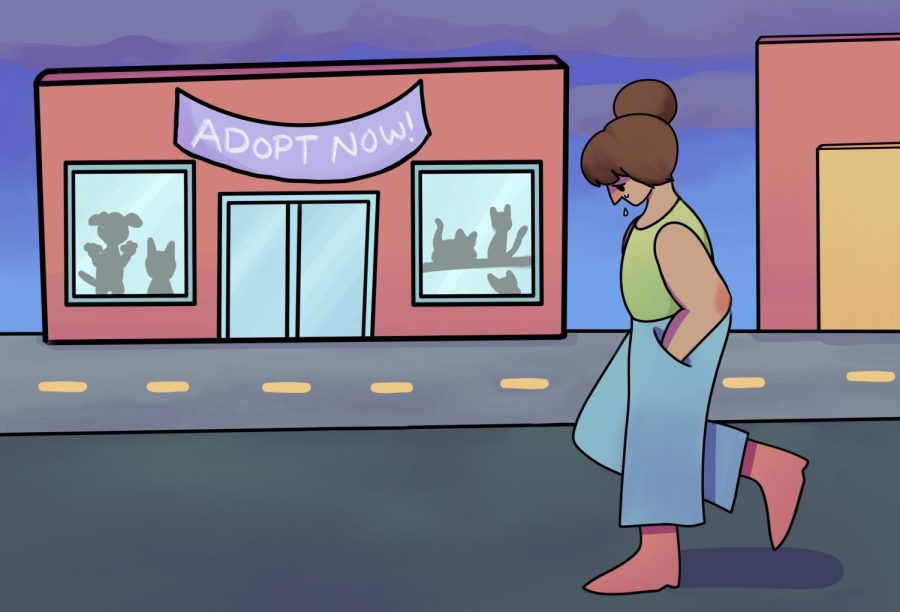Increased rent, inflation leads to overcrowded animal shelters
September 26, 2022
Lindsey Dalton adopted her dog Charlie, a pitbull terrier mix, on a whim after going to the Austin Animal Center’s Clear the Shelters event — she said seeing the crowded shelter pushed her to get the pet she’d joked about adopting.
“In my head, I was like, ‘I don’t know if I’m going to get a dog or not but it’s nice (to) look,’” psychology sophomore Dalton said. “I wanted to be there firsthand.”
Beginning Sept. 13, the Austin Animal Center limited their animal intake because of overcrowding due to a 30% decline of spaying and neutering across the south and a 6% increase in puppies following the pandemic, said Mark Sloat, Austin Animal Center’s program director. In addition, adoption rates have dropped because inflation and housing costs make pets increasingly unaffordable, Sloat said.
“There was a day when we were at 129 dogs more than we had kennels for,” Sloat said. “I’ve been here for 10 years and I’ve never seen it that high.”
At their peak, the center had close to 100 dogs in crates, as opposed to kennels, which impacts the well-being of the animals and creates more work for the staff.
“I literally had staff that were crying coming to and from work because they know it’s not how the dog should be cared for,” Sloat said.
Some apartments in West Campus have a monthly pet rent, making owning pets even less affordable, said Kaleigh Sayroo, the president of Emancipet on Campus, an organization focused on animal welfare in Austin.
“(It isn’t) awful, but it’s still an extra chunk of money,” Sayroo, a human development and family sciences senior, said. “It could be going towards their vaccines or getting spayed.”
Sayroo, who has three dogs, has relatively low pet costs because she works at a veterinary clinic. However, she recognizes that others do not have the same benefits.
“It’s expensive and I get how expensive it is,” Sayroo said. “I feel like everybody deserves to have some sort of companion they live with.”
Dalton’s dog, Charlie, primarily stays at the Skyloft apartment with her boyfriend. Both the Skyloft and her apartment, the Block, have pet rent of about $25 a month.
About 25% of the center’s intake comes from owner surrender because people often give up pets as a last resort, Sloat said.
“With the rising rent costs in Austin and people having to pay pet rent, it’s not really setting them up for success,” Sloat said. “Eventually something’s gotta give.”
Since reducing intake, the shelter will take in pets on a nonemergency basis in the future. Sloat encouraged people to get their pets spayed or neutered to decrease the number of animals and not bring loose pets to the shelter as a first resort. Often, pets are close to their homes, and microchipping animals can help the center reunite them with those homes.
Despite the difficulties of raising a puppy as a student, Dalton said Charlie keeps her “grounded.”
“It’s been tough sometimes but at the same time, there’s been so many good moments that outweigh it,” Dalton said. “She reminds me … that you always got to take care of yourself too.”



